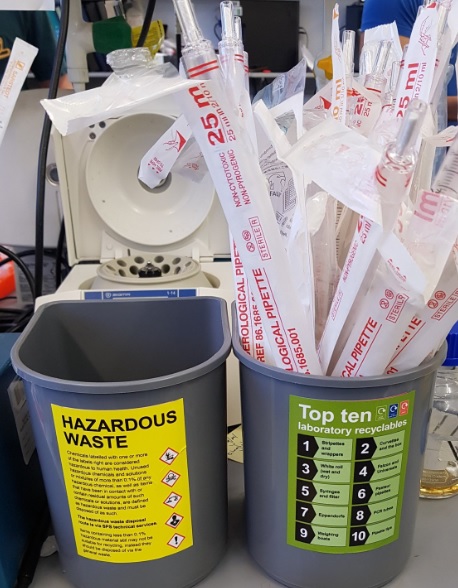The Sustainability Champion for the School of Biosciences has led on a project that has seen recycling rates increase threefold. Alex Moore identified a problem in research labs where the layout of bins and lack of clear information meant that researchers were placing the majority of their recyclable waste into general waste bins (this waste goes to incineration with energy recovery).
On initial assessment 99% the waste in the general waste bins was recyclable. Due to the nature of the waste produced in a research lab and the lack of space Alex and colleagues from the Estates Department came up with a trial new waste scheme to test what would work for the lab users.
New small desktop bins were installed to help researchers with ease of correct disposal at their fingertips, without taking up precious desk space. The main lab bins were relabelled to ensure they were clear and to reflect how many recycling bins there should be to general waste bins. Clear communications through posters and labelling were designed to showcase the top ten lab recyclables that should be going into the green marked bins. All labelling was checked by the Safety, Health and Environment Unit to ensure that it was clear what to do with hazardous/contaminated waste.
The Kent Fungal Group were the test lab and the results after a month of trialling were extraordinary with recycling rates increasing threefold. Once the trial was successfully completed the project was rolled out throughout the School of Biosciences.

